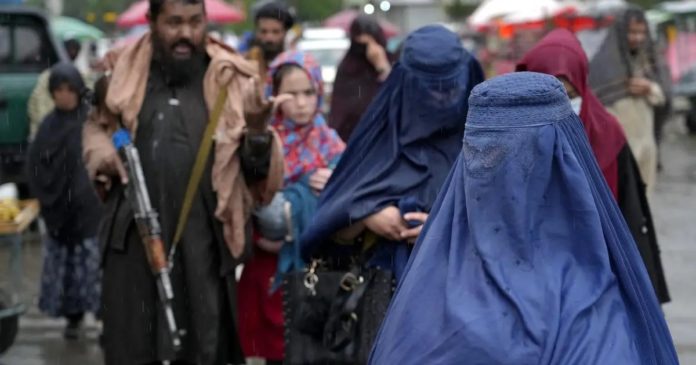Recent data paints a stark picture of the worsening plight of Afghan women’s rights under Taliban rule, highlighting the urgent need for international intervention and support.
In the wake of Afghanistan’s tumultuous political landscape, the voices of Afghan women have emerged as crucial indicators of the country’s socio-political trajectory. A recent report by the United Nations Assistance Mission in Afghanistan (UNAMA) sheds light on the harrowing experiences faced by Afghan women under the rule of the de facto Taliban administration. Through comprehensive consultations with Afghan women across various regions, the report provides a concerning portrayal of the challenges and injustices endured by women in the country.
Enforcement of decrees mandating women to observe the hijab has been described as “very strict” by 58% of respondents, leading to heightened anxiety and fear among women. Over 70% reported feeling unsafe leaving their homes alone, with harassment by Taliban officials cited as a primary concern. Security risks have escalated with recent arrests targeting women for not adhering to the hijab decree, exacerbating feelings of vulnerability. Nearly all women (96%) expressed a lack of trust in their neighbors, reflecting pervasive security concerns and a breakdown of social cohesion.
Furthermore, there has been a significant decline in women’s influence within familial contexts, with only 32% reporting “good” or “full” influence on household decision-making, down from 90% in the previous year. This erosion of agency underscores broader challenges to women’s autonomy and empowerment.
The report further underscores the profound impact of the crisis on future generations, particularly girls. Limited prospects for education and economic empowerment threaten to perpetuate cycles of poverty and gender inequality. Data shows that households are more likely to prioritize boys’ education and employment opportunities, further exacerbating gender disparities and hindering progress towards gender equality.
In response to these challenges, Afghan women are calling for decisive action from the international community and the Taliban to uphold their rights and empower them to shape the country’s future. Recommendations include advocating for inclusive governance, supporting women’s participation in decision-making, and investing in programs promoting their economic empowerment and education. With the Taliban’s track record of oppression and discrimination against women, international recognition must be contingent upon meaningful improvements in rights, rather than legitimizing repressive policies and practices.
Crucially, the data reveals that 32% of respondents expressed the view that international recognition of the de facto authorities should be contingent upon the complete reversal of all restrictions. Additionally, 25% stated that recognition should follow the reversal of specific bans, while 28% believed that recognition should not occur under any circumstances. Comparatively, in July 2023, a similar question revealed that 96% of women opined that recognition should only take place after advancements in women’s rights or should not happen at all.
Given the severity of the ongoing crisis confronting Afghan women, urgent action is imperative. Sustained advocacy and collaborative initiatives are essential to protect and promote their rights in the face of considerable challenges and adversity. Only by centering the needs and aspirations of Afghan women can meaningful progress be made toward a more just and resilient society.




